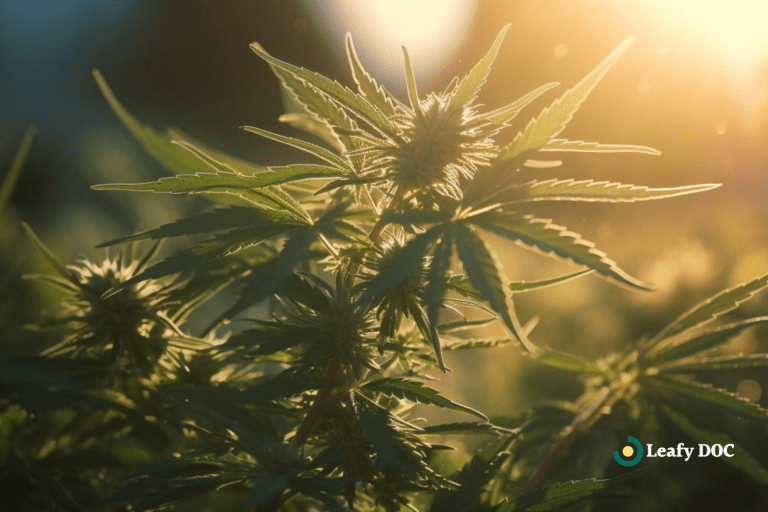Back Pain
The medical community is beginning to recognize cannabis as a means to help relieve and control chronic pain. While there are many studies regarding CBD and pain, CBG is a cannabinoid that has gained popularity for pain relief. Many believe that certain cannabinoids have therapeutic potential to help relieve back pain symptoms.
Back Pain 101
Back pain, or lumbago, will affect eight out of ten people in their lifetime and is one of the main reasons people seek medical attention. Back pain is one of the top disabilities for adults on a global scale.
There are many actions and treatments that can help prevent or relieve most back pain, especially for younger adults. Surgery can help, but it is rarely needed. Most of the time stretches and learning to use your body correctly will do the trick.
What causes back pain?
Back pain can mean aching muscles or even shooting, burning, radiating, or stabbing sensations. At times, squatting, lifting, standing, or walking can worsen it.
Other signs include shooting pain and discomfort through the leg. Back pain can signify more severe illness if symptoms include stomach issues or fever.
Some types of lower back stem from various health problems, including fibromyalgia and kidney stones. Prescription medicine, CBD treatment, spinal injections, and as a last resort surgery are the most standard treatments for back pain.
Cannabinoids and Pain Research
Cannabinoids are the chemicals inside cannabis and marijuana plants. In a nutshell, they are the chemical compounds in marijuana that cause people to feel high and the active ingredients in cannabis that produce specific therapeutic effects.
The potential benefits of medical treatment with cannabis are vast. Specific cannabinoids can produce a therapeutic potential for patients with different health conditions.
Peer-reviewed studies suggest that cannabinoids have varying health benefits. They have been used throughout history to manage various health concerns and ailments. While research continues, more evidence suggests that cannabis and cannabinoids can benefit human health.
CBD
CBD is used daily for various therapeutic benefits, from digestive aids to helping calm mental disorder symptoms. CBD’s benefits have been shown to have positive effects in regulating seizures. The FDA has approved CBD as a prescription-strength (Epidiolex), a medication used for certain forms of epilepsy.
Cannabis and hemp have been used historically for pain management for long-term pain sufferers and those with diseases such as cancer to manage the symptoms after chemotherapy. CBD is non-intoxicating and has been shown in some cases to counteract the impact THC, and other stimulants like alcohol may have on the body.
The Benefits of using CBD include the following:
- chronic pain relief
- reduce inflammation
- helps relieve cancer-related symptoms
- can alleviate mood and mental disorder symptoms
- promote healthy sleep patterns
CBD for Chronic pain
Chronic pain lasts extended and can occur in many body parts simultaneously. It typically interferes with a person’s daily routine and can lead to anxiety or depression.
These are the most common types of chronic pain:
- Back pain
- Cancer-related pain
- Joint pain
- Muscle pain
- Neck Pain
- Nerve-related pain
- Neurogenic pain
- Scar Tissue Pain
- Severe headaches
- Testicular pain
CBD has anti-inflammatory qualities, can reduce pain, and even fully treat pain in some patients. It is also an antioxidant and can help reduce long-term inflammation. CBD contains cannabinoid receptors that can block chronic pain signals in the brain and trigger an increased immune response.
What is CBG?
Cannabigerol (CBG) is a non-psychoactive cannabinoid obtained from young cannabis plants. All other cannabinoids are derivatives of cannabigerolic acid (CBGA), an acidic form of CBG. Commonly seen cannabinoids include cannabidiol (CBD) and delta-9 tetrahydrocannabinol (THC).
What are the effects of CBG?
Cannabigerol (CBG) is a cannabinoid. Cannabinoids essentially mimic the body’s endocannabinoid system, such as anandamide. Anandamide is a fatty acid that activates the receptors. Cannabinoids bind themselves to fat-soluble molecules to enter a cell’s lipid bilayer.
CBG works by binding to CB1 and CB2 cannabinoid receptors, where it’s thought to strengthen the function of anandamide. This neurotransmitter enhances pleasure and motivation, regulates appetite and sleep, and alleviates pain.
CBG vs. CBD
Both CBG and CBD interact differently with the body’s endocannabinoid system. CBG interacts with CB1 and CB2 receptors, while CBD engages with them indirectly.
The two cannabinoids have similar effects. CBD oils are generally better for physical ailments such as chronic pain and inflammation, while CBG works better for cerebral issues like stress, anxiety, focus, and attention span. There is a significant amount of research to support claims of medicinal benefits for CBD; however, CBG studies are still scarce.
Producing CBD takes exponentially less cannabis plant matter than creating the same amount of CBG, lowering CBD prices. Until a breakthrough in CBG production, it likely won’t reach the popularity levels of full-spectrum CBD oils.
Research has shown CBD to affect different forms of anxiety disorders positively. It has been shown to reduce stress. CBD benefits general anxiety disorder and other severe anxiety conditions, including post-traumatic stress disorder, obsessive-compulsive disorder, and social anxiety disorder. Studies in mice and rats showed lower heart rates and less stress with CBD.
A recent study that used a simulated public speaking test to show anxiety levels in speakers showed significant promise that CBD can help reduce fears and anxiety associated with speaking in front of a group. Continued research is being done to see how CBD can manage various forms of stress.
CBD has been shown in research studies to help people fall asleep, stay asleep, and improve sleep quality. The endocannabinoid system has a part in maintaining several body functions, including sleep and regulation of circadian rhythms. CBD can offer a night of better sleep and, thus, a healthy lifestyle.
The FDA approved a prescription-strength dose of CBD for severe epilepsy, Epidiolex oral solution, from GW Pharmaceuticals. Preclinical evidence proves that CBD oil has been shown to reduce seizures by activating the CB1 receptors. More research is currently being done on CBD oil for conditions like dravet syndrome and Lennox gastaut syndrome.
The Medical Benefits of CBG
CBG helps with inflammation, chronic pain, nausea, depression, and anxiety and works to slow the growth of cancer cells. Research has shown it also significantly reduces eye pressure caused by glaucoma and can help patients live pain-free life.
Strains high in CBG can treat medical conditions such as inflammatory bowel disease, Crohn’s disease, multiple sclerosis, and cancer. Read on below to dive deeper into CBG research and findings.
CBG has shown promising effects on specific inflammatory channels in mice related to the response of chronic inflammation in the bodies. The study concluded that CBG helped to support a normal inflammatory response.
Another experimental study from 2013 observed the benefits of CBG on inflammatory bowel disease (IBS). Researchers induced colon inflammation in mice and then gave them CBG, reducing the inflammation and nitric oxide production. It also reduced the reactive oxygen species (ROS) in their intestines.
CBG seems to share the appetite-stimulating trait well-known by THC users and produces what is commonly referred to as the munchies. Appetite stimulation can help certain people obtain proper nutrients when they do not want to eat. In a recent study with rats, CBG increased their appetites without producing harmful side effects.
Here are the many ways in which CBG can potentially help people:
- Depression & Anxiety
- Inflammation
- Discomfort
- Metabolism
- Eyesight
- Focus
- Stress
- Appetite
Delta-8 THC and Pain Management
Delta-8 THC’s popularity began when an oversupply of CBD extracted from hemp grown in the United States caused the price of CBD to fall dramatically. Producers began looking for ways to convert CBD into delta-8 THC. The cannabis industry marketed the products to those seeking pain relief and stress management, those not looking for an intense high, and those living in illegal areas.
In Conclusion
There are a few cannabinoids that work particularly well for chronic pain symptoms, including debilitating back pain. By using CBD, CBG, and THC products, medical marijuana patients can learn how to manage symptoms and get their quality of life back.
Last Updated: June 14, 2024
Get Your Medical Card
Connect with a licensed physician online in minutes
Table of Contents
Keep Reading
-
The Synergy Of Cannabis And Yoga Meditation
Uncover the powerful combination of cannabis and yoga meditation for unparalleled relaxation and mental clarity. Elevate your practice today and experience a new level of tranquility. Click here to learn more!
-
Optimize Your Athletic Performance With Cannabis
Unleash your full athletic potential with cannabis for athletic performance. Explore the benefits and optimize your training for peak results today!
-
Exploring The Benefits Of CBD For Workouts
Uncover the amazing benefits of CBD for your workouts and recovery in this comprehensive guide. Maximize your fitness potential with CBD workout benefits – start optimizing your routine today!



